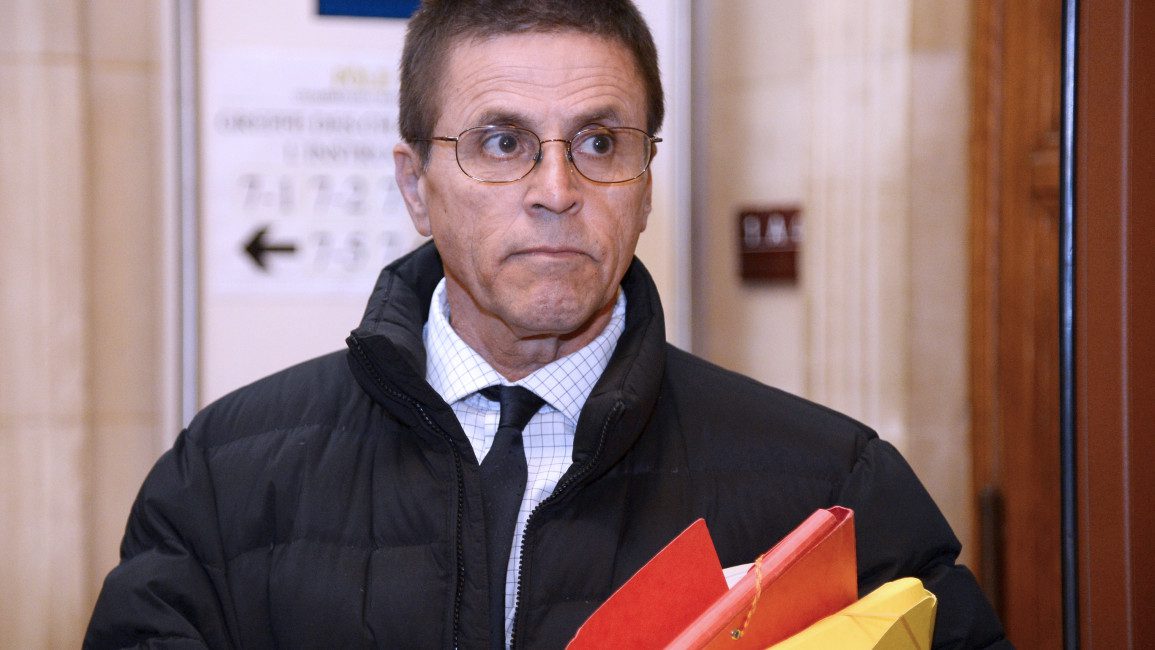World
France gives Lebanese-Canadian academic life sentence for the bombing of Paris synagogue in 1980

On Friday, a Paris court convicted a Lebanese-Canadian professor of sociology to life in jail without the chance of parole for the 1980 bombing of a synagogue in Paris that killed four people.
Hassan Diab, who is now 69 and lives in Canada, got the harshest sentence possible because the lawyers asked for it. The court’s decision was met with silence in court.
At the end of three weeks of court hearings, during which the suspect’s box was always empty, some of the victims and their families were seen hugging.
In their final arguments on Thursday, the prosecutors said that there was “no possible doubt” that Diab, the only suspect, was behind the attack.
Diab called the decision “Kafkaesque” and “not fair” when he was talking to reporters in Ottawa.
“We’d hoped that reason would win out,” he said, adding that he doesn’t think Canada will send him back to France to serve his term.
In the early evening of October 3, 1980, a motorbike with explosives on it blew up near a synagogue on Rue Copernic in Paris’s chic 16th district. The explosion killed a motorcycling student, a driver, an Israeli writer and a caretaker.
46 more people were hurt in the explosion.
The blast was the first attack that killed someone on French land against a Jewish target since World War II.
No group said it did it, but cops thought it might have been a breakaway group of the Popular Front for the Liberation of Palestine.
In 1999, French intelligence agents said that Diab made the bomb that weighed 10 kilogrammes (22 pounds).
They said that Diab was the person who bought the motorbike that was used in the attack because he looked like a police sketch from the time and his handwriting was analysed.
They also showed a key piece of evidence against him: a passport in his name that was seized in Rome in 1981 and had entry and exit stamps from Spain, which was thought to be where the plan for the attack started.
The French government asked Canada to send Diab back to France in 2014.
During the investigation, however, judges were unable to show Diab’s guilt beyond a reasonable doubt. He was freed and left France for Canada in 2018 as a free man.
Three years later, a French court reversed this earlier ruling and said that Diab should stand trial on charges of murder, attempted murder, and property damage in connection with a terrorist organisation.
At a press conference after the decision was revealed, Canada’s Prime Minister Justin Trudeau said, “We will carefully consider the next steps, including what the French government and courts decide to do.”
“But we will always be there to protect the rights of Canadians,” he said.
Denials
Most of the evidence against Diab came from intelligence sources, and Diab’s lawyers claimed again that the case should be thrown out.
William Bourdon, a famous defence attorney, told the court Thursday, “I’m here to prevent a miscarriage of justice.” He said that an acquittal was “the only legal decision that could be made.”
Diab has said that he was taking tests in Lebanon at the time of the attack. His ex-partner and some of his former students have said the same thing.
His sentence means that he will now have another arrest warrant, which could make things worse between France and Canada since it took six years to get him back the first time.
David Pere, a lawyer for some of the people who were in the synagogue at the time of the bombing, said that his clients were “not looking for revenge or a guilty person’s head to stick on a pike; they just want justice to be done.”
Diab has gotten some support from NGOs, such as Amnesty International, which said that his claim that he was in Lebanon when the attack happened was true.
